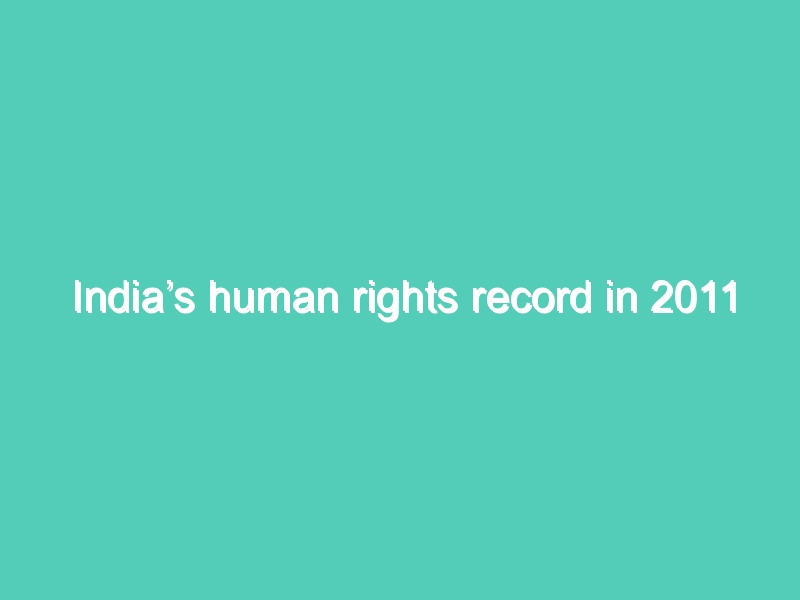New York, January 31: India’s human rights record in 2011 got a thumbs down from a leading global rights group for its “failure” to protect vulnerable communities and rapped the government for custodial killings, police abuses, including torture.
Human Rights Watch also criticised the Indian government for its inaction in repealing the controversial armed forces act and for remaining silent on the “gravest abuses” in countries like Syria.
In its World Report 2012, Human Rights Watch (HRW) assessed progress on human rights during the past year in more than 90 countries. In India’s case, HRW said it has been a “disappointing year for human rights”.
“Custodial killings, police abuses including torture, and failure to implement policies to protect vulnerable communities marred India’s record in 2011 as in the past,” HRW said in its report.
Asia director at the city-based organisation Brad Adams said the Indian government took few steps to “prosecute abusive soldiers, undertake needed police reforms, or bring an end to torture. Internationally, India missed opportunities to be a leader at the United Nations Security Council and Human Rights Council in protecting the rights of vulnerable people abroad.”
HRW said the Indian government took no action to repeal the “widely discredited Armed Forces Special Powers Act (AFSPA), disregarding the recommendations of political leaders and advisers.
“Prime Minister Manmohan Singh’s call for ‘zero tolerance’ of abuses by the armed forces has been undercut by the near zero progress in holding the abusers responsible,” Adams said.
HRW however said violence in the northern state of Jammu and Kashmir dropped significantly during 2011. While the government has promised a thorough inquiry into the discovery of over 2000 unmarked graves in the state.
In the international arena too HRW said India left a lot to be desired. India served on both the UN Security Council and Human Rights Council but it “let opportunities pass to support independent, international investigations into conflict-related abuses in Sri Lanka and Burma”.
India did not use memberships on these bodies to show leadership to protect human rights abroad but instead “remained silent on even the gravest abuses” in countries like Syria. “India is now watched closely for signs of responsible global leadership,” Adams said.
HRW however commended India’s Presidency at the Security Council, during which it was able to secure a consensus among sharply divided member states on Syria, leading to the first Council statement condemning the violence.
The government however adopted “long overdue” measures to compensate rape victims and revised its medico-legal protocols to exclude the humiliating “finger” test to investigate rape cases, Human Rights Watch said.



